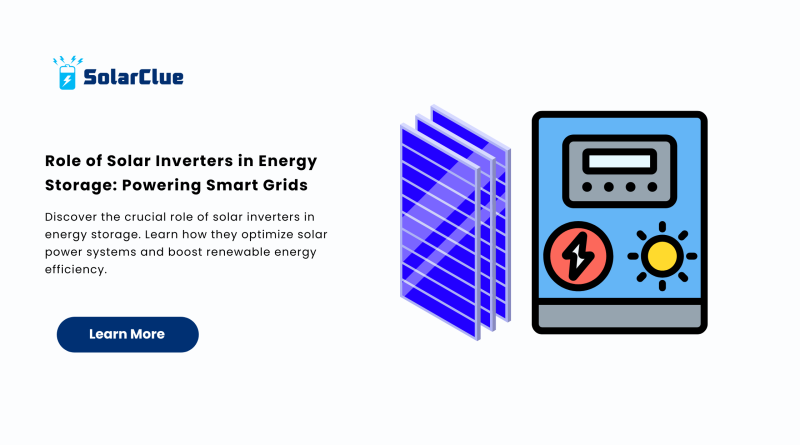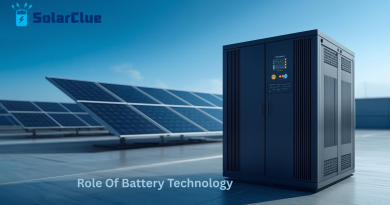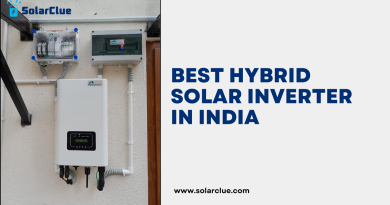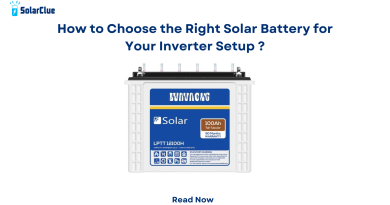Role of Solar Inverters in Energy Storage: Powering Smart Grids
As the world pivots toward a more sustainable future, the spotlight has turned toward solar energy and renewable energy technologies. Among these, energy storage systems are making waves by offering consistent power even when the sun isn’t shining. But what ties solar generation to storage, and enables this magic to happen efficiently? The answer lies in the often-overlooked component—the solar inverter. Understanding the role of solar inverters in energy storage is essential for anyone investing in a modern solar power system.
Table of Contents
- 1 What Are Solar Inverters?
- 2 The Evolution of Energy Storage
- 3 The Real Role of Solar Inverters in Energy Storage
- 4 Inverters Are the Brain of Solar Systems
- 5 AC vs DC-Coupled Systems
- 6 Managing Energy Loads
- 7 Extending Battery Lifespan
- 8 Inverters in Grid-Tied vs Off-Grid Systems
- 9 Hybrid Inverters: A Smart Choice
- 10 Real-Time Monitoring and Safety
- 11 Aligning with Global Sustainability Goals
- 12 Choosing the Right Inverter
- 13 Technological Advancements
- 14 Financial Benefits and ROI
- 15 The Future Is Smart, Clean, and Decentralized
- 16 Conclusion
- 17 FAQs
What Are Solar Inverters?
A solar inverter is a device that converts the direct current (DC) generated by solar panels into alternating current (AC), which is usable by home appliances and the electrical grid. Available in types such as string inverters, microinverters, hybrid inverters, and central inverters, these devices are the central nervous system of any solar power system, ensuring optimal energy conversion and distribution.
The Evolution of Energy Storage
In the past, solar setups used basic battery banks to store excess power. Now, with advancements in lithium-ion and other battery technologies, storage systems have become smarter and more responsive. Integrating these with renewable energy sources is no longer optional—it’s essential. And it’s the solar inverters that make this integration seamless and effective.
The Real Role of Solar Inverters in Energy Storage
The role of solar inverters in energy storage goes far beyond power conversion. Modern inverters act as intelligent energy managers—deciding how much solar power should go to your home, how much should charge your batteries, and how much should be exported to the grid. They balance load, optimize output, and protect your system from faults, all in real time.
Inverters Are the Brain of Solar Systems
More than just hardware, solar inverters function like the brains behind your energy operations. With real-time monitoring capabilities, they allow for precise control over energy flow. This means you can optimize consumption patterns, reduce wastage, and even adapt to dynamic electricity pricing models for greater cost efficiency.
AC vs DC-Coupled Systems
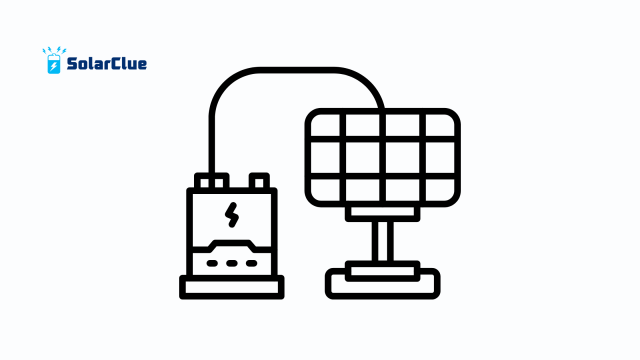
There are two main configurations for energy storage systems: DC-coupled and AC-coupled. In a DC-coupled system, solar panels and batteries share a common solar inverter, reducing conversion losses and increasing efficiency. In AC-coupled systems, separate inverters handle the solar and storage parts, making them easier to retrofit in existing systems. Both systems depend heavily on inverters for effective energy management.
Managing Energy Loads
A major advantage of solar inverters is load management. During peak sunshine hours, excess electricity can overload a system if not properly routed. Inverters manage this flow, sending power where it’s needed, storing the excess, and even selling it back to the grid when allowed—maximizing the utility of your solar energy investment.
Extending Battery Lifespan
Battery systems are expensive, and longevity is key. Solar inverters regulate the charging and discharging of batteries, preventing deep discharge and overcharging. By maintaining ideal voltage and current levels, they protect your energy storage system and ensure long-term savings.
Inverters in Grid-Tied vs Off-Grid Systems
In grid-tied systems, solar inverters help synchronize your system’s output with the utility grid, preventing damage and improving stability. In off-grid systems, inverters take full control—deciding which power source to use, when to charge or discharge, and how to ensure uninterrupted power even during low generation periods.
Hybrid Inverters: A Smart Choice
Hybrid solar inverters combine the functions of traditional and battery inverters. These devices handle solar inputs and energy storage, allowing users to operate their system in multiple modes: grid-tied, off-grid, or hybrid. They are perfect for residential setups aiming for flexibility, backup power, and future-proofing.
Real-Time Monitoring and Safety
Smart inverters come equipped with features like remote monitoring, performance tracking, and alert systems. These features offer peace of mind by allowing users to detect anomalies, optimize performance, and schedule timely maintenance—essential for maintaining an efficient solar power system.
Aligning with Global Sustainability Goals
Efficient solar inverters contribute directly to SDG 7 (Affordable and Clean Energy) and SDG 13 (Climate Action). By enabling intelligent storage and distribution, they support the broader mission of reducing fossil fuel dependence and stabilizing power grids with clean renewable energy.
Choosing the Right Inverter
When selecting an inverter for your storage-integrated system, consider factors like battery compatibility, energy needs, brand reputation, and service support. The right inverter enhances performance, reduces maintenance, and integrates easily with your solar power system.
Technological Advancements
Modern solar inverters now include AI algorithms that predict usage patterns and auto-adjust power flows. IoT connectivity allows them to communicate with smart home systems, ensuring seamless integration. These technologies are pushing energy efficiency to new heights and redefining what’s possible with solar energy.
Financial Benefits and ROI
While solar inverters represent a cost upfront, they pay off by increasing system efficiency and reducing energy waste. When paired with storage, they can help achieve near-total energy independence, slashing electricity bills and delivering strong ROI over time.
The Future Is Smart, Clean, and Decentralized
Expect the next generation of solar inverters to include vehicle-to-grid capabilities, bi-directional flow, and AI-powered diagnostics. These innovations will transform the role of solar inverters in energy storage, making decentralized clean power not only feasible but affordable and scalable.
Conclusion
The role of solar inverters in energy storage is more critical than ever. As we transition to a world powered by solar energy and other renewable energy sources, inverters act as the intelligent link that brings together generation, storage, and consumption. They are no longer just accessories—they are the very backbone of an efficient and resilient solar power system.
So, whether you’re a homeowner looking to reduce your bills or a business aiming for sustainability, investing in a smart solar inverter is a step in the right direction. Ready to explore? Start your journey at solarclue.com and dive deeper with expert tips at blog.solarclue.com. Because powering a smarter future begins with the right choice—and we’re here to help.
FAQs
1. What is the main function of a solar inverter in energy storage?
A solar inverter converts DC power from solar panels to AC and manages energy flow between the grid, batteries, and your appliances.
2. How do hybrid inverters support solar and battery integration?
They combine solar and battery inputs in one device, allowing seamless switching between power sources.
3. Are solar inverters essential in off-grid setups?
Absolutely. Off-grid systems rely on solar inverters to manage energy distribution and maintain stability without grid support.
4. Can inverters extend battery life in energy storage systems?
Yes, by regulating charging cycles and avoiding harmful overcharging or deep discharging.
5. What features should I look for in a solar inverter?
Look for efficiency ratings, battery compatibility, remote monitoring, strong warranties, and robust technical support.
Curious to learn more or ready to power up your space with clean energy? Visit solarclue.com today, and for deep-dive insights, don’t miss out on blog.solarclue.com—your solar journey starts here 🌞🔋

